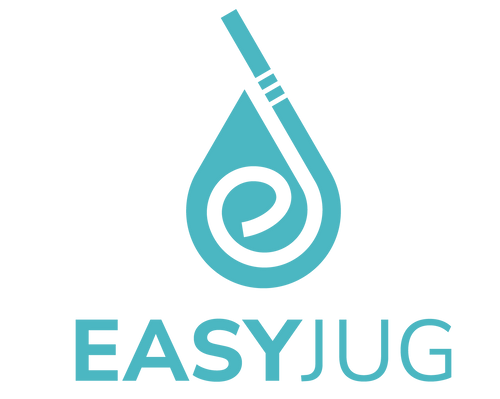Congratulations! You’re 39 weeks pregnant and in the home stretch of this incredible journey. If you’re feeling extremely tired and sleepy, you’re not alone. Many pregnant women experience significant fatigue as they approach their due date. At EasyJug, we understand the challenges of these final weeks, especially when it comes to maintaining your energy and hydration levels. Our mission is to support you with simple, effective solutions for your hydration needs, so let’s dive into how you can navigate this stage of your pregnancy.
Understanding Third Trimester Fatigue
Fatigue during the third trimester is common due to the physical and hormonal changes your body is undergoing. Your growing baby is demanding more energy, and your body is working hard to prepare for the upcoming labor. Here are some key factors contributing to your tiredness:
Hormonal Changes
Fluctuating hormones can significantly impact your energy levels.
- Progesterone - Progesterone levels, which began rising during the first trimester, remain elevated throughout your pregnancy. This hormone helps maintain the uterine lining and supports your baby’s development. However, high levels of progesterone can also cause sleep problems by relaxing the smooth muscles, leading to snoring and sleep apnea, which can disrupt the amount of sleep you get each night.
- Estrogen: Estrogen levels also increase significantly, especially in the second trimester. This hormone supports the growth of blood vessels necessary for delivering nutrients to your baby. Elevated estrogen levels can contribute to feelings of fatigue and cause strange dreams and restlessness at night, making it hard to get much rest.
- Human Chorionic Gonadotropin (hCG): hCG peaks during the first trimester and can cause symptoms like nausea. While hCG levels tend to stabilize later in pregnancy, its earlier effects can lead to chronic fatigue syndrome-like symptoms that persist throughout the pregnancy.
- Cortisol: Cortisol, the stress hormone, naturally increases during pregnancy to help manage the physical and emotional stress of carrying a baby. High cortisol levels can lead to feelings of fatigue, even if you’ve had enough sleep the night before. This is your body’s way of encouraging you to slow down and prepare for labor.
- Relaxin: Relaxin helps to relax the ligaments in your pelvis and soften and widen the cervix in preparation for birth. While necessary, it can also cause discomfort and pelvic pain, contributing to feelings of fatigue as your body prepares for the signs of labour.
- Oxytocin: As you near the 39th week of pregnancy, oxytocin levels begin to rise, preparing your body for labor and delivery. This hormone helps trigger contractions and can cause early signs of labour such as Braxton Hicks contractions and false labor contractions. The increased physical activity and anticipation can contribute to feelings of exhaustion.

Physical Strain
Carrying extra weight and the baby's movements can make it harder to get comfortable and rest. As you progress through the third trimester, the physical strain of carrying extra weight and the baby’s movements can significantly impact your comfort and ability to rest. Understanding these factors can help you better manage the fatigue and find ways to alleviate discomfort.During the final weeks of pregnancy, your body is carrying significantly more weight than usual. This extra weight is primarily due to the growing baby, increased blood volume, amniotic fluid, and the placenta. Here’s how this added weight affects you:
- Increased Pressure on Muscles and Joints: The additional weight puts more pressure on your muscles and joints, especially in your back, hips, and legs. This can lead to lower back pain, pelvic pain, and general discomfort, making it challenging to find a comfortable position to rest or sleep.
- Altered Center of Gravity: The growing belly shifts your center of gravity, which can affect your posture and balance. This change can lead to muscle strain and fatigue, as your body works harder to maintain stability and support the extra weight.
- Circulatory Changes: The increased blood volume and pressure on blood vessels can lead to swelling (edema) in your feet, ankles, and legs. Swelling can cause discomfort and make it difficult to stay comfortable, especially when lying down.
As your baby grows, their movements become more pronounced. While feeling your baby move is a reassuring sign of their health, these movements can also disrupt your rest:
- Frequent and Strong Movements: By the 39th week of pregnancy, your baby’s movements can be quite strong and frequent. These kicks, rolls, and stretches can make it challenging to find a comfortable sleeping position and may wake you up during the night.
- Pressure on Organs: The baby’s movements and position can put pressure on your bladder, leading to more frequent trips to the bathroom. This can disrupt your sleep and contribute to a lack of rest.
- Discomfort and Pain: Sometimes, the baby’s movements can cause discomfort or even pain, particularly if they press against sensitive areas like the ribs or bladder. This can make it hard to relax and fall asleep.
Tips for Managing Physical Strain
To manage the physical strain and improve your comfort and rest during the final weeks of pregnancy, consider the following tips:
- Use Supportive Pillows: Pregnancy pillows can provide support for your back, belly, and legs, helping to alleviate pressure and improve comfort. Sleeping on your left side with a pillow between your knees can also enhance blood flow and reduce strain.
- Practice Gentle Exercise: Activities like prenatal yoga, swimming, or short walks can help strengthen your muscles, improve circulation, and reduce discomfort. Always consult your healthcare provider before starting any exercise routine.
- Stay Hydrated: Proper hydration is essential for reducing swelling and maintaining overall health. EasyJug makes it easy to stay hydrated throughout the day and night, ensuring you get the fluids you need without hassle.
- Elevate Your Feet: Elevating your feet when sitting or lying down can help reduce swelling and improve comfort. Use a footrest or pillows to keep your feet elevated.
- Take Frequent Breaks: Avoid standing or sitting in one position for too long. Take breaks to move around and stretch, which can help relieve muscle tension and improve circulation.
- Wear Comfortable Clothing: Choose loose, comfortable clothing that doesn’t restrict movement or put additional pressure on your body. Maternity support belts can also help distribute the weight more evenly and reduce strain on your back.

Sleep Problems
Sleep problems are a common challenge during the third trimester of pregnancy, often resulting in significant fatigue. Difficulty finding a comfortable sleeping position, frequent trips to the bathroom, and vivid dreams can all disrupt your sleep. Let’s delve into these issues and explore strategies to improve your rest during this crucial time.
Difficulty Finding a Comfortable Sleeping Position
As your pregnancy progresses, finding a comfortable sleeping position can become increasingly difficult. Here’s why:
- Growing Belly: Your expanding belly can make it hard to lie comfortably, especially if you’re used to sleeping on your back or stomach. The weight of your baby can put pressure on your back, hips, and legs, leading to discomfort and pain.
- Preferred Position: Medical professionals generally recommend that pregnant people sleep on their left side. This position improves blood flow to your baby and helps reduce swelling. However, staying in one position all night can be uncomfortable and may cause muscle stiffness.
- Support Needs: Without proper support, sleeping on your side can strain your lower back and hips. Using a pregnancy pillow or placing pillows between your knees and under your belly can provide much-needed support and help you find a more comfortable position.
Frequent Trips to the Bathroom
Frequent urination is another common issue that disrupts sleep during the third trimester:
- Pressure on the Bladder: As your baby grows and moves lower into the pelvis, they put increased pressure on your bladder. This can lead to frequent and urgent trips to the bathroom, especially during the night.
- Hydration Balance: While staying hydrated is crucial, drinking large amounts of fluid before bed can exacerbate the need to urinate. It’s important to find a balance by staying hydrated throughout the day and reducing fluid intake in the evening.
Vivid Dreams and Restlessness
Many pregnant women experience vivid dreams and restlessness, which can also interfere with sleep:
- Hormonal Changes: Fluctuating hormones, particularly progesterone, can influence your sleep patterns and contribute to vivid, often strange dreams. These dreams can wake you up and make it difficult to fall back asleep.
- Anxiety and Anticipation: As you approach your due date, it’s natural to feel anxious or excited about the upcoming birth and changes to your life. These feelings can manifest in your dreams, leading to more vivid and memorable experiences.
- Physical Discomfort: Physical discomfort from your growing belly, frequent fetal movements, and the need to change positions can make it hard to stay asleep, leading to a restless night.

Tips for Managing Sleep Problems
To improve your sleep quality during the third trimester, consider the following tips:
- Create a Comfortable Sleep Environment: Ensure your bedroom is cool, dark, and quiet. Use blackout curtains, a white noise machine, or earplugs if necessary.
- Invest in a Pregnancy Pillow: A pregnancy pillow can provide support for your back, belly, and legs, helping you maintain a comfortable side-sleeping position.
- Stay Hydrated Wisely: Drink plenty of fluids during the day but reduce your intake a few hours before bed to minimize nighttime bathroom trips. Keep EasyJug by your bedside to stay hydrated without having to get up frequently.
- Develop a Bedtime Routine: Establish a relaxing bedtime routine to signal your body that it’s time to wind down. This could include activities such as reading, taking a warm bath, or practicing prenatal yoga.
- Limit Screen Time: Avoid screens (phones, tablets, computers, and TVs) at least an hour before bed. The blue light emitted by screens can interfere with your body’s natural sleep-wake cycle.
- Manage Anxiety: If anxiety or excitement is keeping you awake, try relaxation techniques such as deep breathing, meditation, or journaling to calm your mind before bed.
- Over the Counter Medication: Curious if Sleep medications like Unisom are safe to take during pregnancy? Find out more in our blog post: Is Using Unisom for Insomnia During Pregnancy Safe
To combat extreme fatigue, prioritize rest and self-care. Here are some tips to help you through these final weeks:
- Listen to Your Body: Take breaks and nap when needed. Don’t push yourself too hard.
- Healthy Diet: Maintain a balanced diet to keep your energy levels stable.
- Hydration: Stay hydrated with EasyJug. Proper hydration is crucial for your overall well-being and energy.
- Gentle Exercise: Activities like prenatal yoga or short walks can boost your energy and improve your mood.
- Comfortable Sleep: Use a pregnancy pillow and sleep on your left side to improve blood flow and comfort.

The Importance of Hydration at 39 Weeks Pregnant
As you approach the end of your pregnancy, staying hydrated is more important than ever, especially when it comes to managing energy and fatigue. Here’s why maintaining proper hydration at 39 weeks pregnant is crucial for your well-being:
Supporting Your Body’s Needs
Hydration plays a vital role in maintaining the amniotic fluid that surrounds your baby, cushioning and protecting them as they prepare for birth. As your body works overtime, preparing for labor and supporting your growing baby, it’s essential to stay hydrated to keep your energy levels up and combat fatigue.
Managing Energy and Fatigue
- Preventing Dehydration: Dehydration can lead to a lack of sleep and increased fatigue. Drinking enough water helps regulate your body temperature and keeps you comfortable, reducing the chances of feeling overly tired.
- Reducing Common Pregnancy Symptoms: Proper hydration can alleviate some common pregnancy symptoms like lower back pain, pelvic pain, and Braxton-Hicks contractions. It can also help with digestive system issues, such as constipation and bowel movements, which can be uncomfortable in the last weeks of pregnancy.
- Boosting Mental Health: Staying hydrated supports your mental health by reducing stress and anxiety levels. It helps you feel more alert and focused, which is essential as you prepare for the big day.
Preparing for Labor
As you approach full term, staying hydrated is essential for several reasons:
- Signs of Labor: Being well-hydrated can help you better recognize the early signs of labor, such as water breaking and increased fetal movement. It also helps you manage the intense physical demands of labor.
- Medical Conditions: For those with medical conditions like gestational diabetes or high blood pressure, maintaining hydration is crucial. It helps regulate blood pressure and blood sugar levels, ensuring both you and your baby remain in the best health possible.
Practical Hydration Tips
To ensure you’re staying hydrated:
- Drink Regularly: Aim to drink small amounts of water consistently throughout the day, rather than large amounts at once.
- Listen to Your Body: Thirst is a sign that your body needs water. Don't ignore it, especially in the last weeks of pregnancy.
- Healthy Pregnancy Routine: Incorporate other healthy habits such as gentle exercise, prenatal massage, and getting enough sleep. A warm bath can also be a great way to relax.
Why EasyJug is the Best Water Bottle for Pregnant and Postpartum Moms
Staying hydrated is essential, especially during pregnancy and postpartum. EasyJug is designed with the unique needs of breastfeeding moms in mind, making it the perfect companion for both your pregnancy and postpartum journey. Here’s why EasyJug stands out as the best water bottle for pregnant and postpartum moms:
Convenient and Practical Design
EasyJug is a 2.2-liter breastfeeding water bottle equipped with a 47-inch long straw, allowing you to hydrate hands-free in any breastfeeding position, even while lying down. This innovative design ensures you can stay hydrated without interrupting your nursing routine, making it easier to take care of both yourself and your baby.
- Hands-Free Hydration: The long straw lets you drink without having to use your hands, which is incredibly convenient when you’re holding your baby or in a comfortable breastfeeding position.
- Ideal for Late Night Feeds: Keep EasyJug by your bedside to hydrate easily during late-night feeds. The long straw allows you to drink while lying on your side, promoting comfort and ease.
Essential for Hospital Stays
Pack EasyJug in your hospital bag for a hassle-free hydration solution during labor and post-delivery. After giving birth, it can be uncomfortable to move or sit up, making it difficult to stay hydrated. EasyJug allows you to drink effortlessly without having to adjust your position, ensuring you get the fluids you need to recover and produce milk.
Perfect for Your Nursing Station
Set up EasyJug at your nursing station to ensure you have a reliable hydration source within reach. When your hands are full holding your baby, the last thing you want is to struggle with a water bottle. EasyJug’s design allows you to stay hydrated seamlessly.
Leak-Proof and Easy to Use
After you’re done drinking, clip the straw on top of the lid to prevent the straw from leaking. This thoughtful feature ensures that you can sip and relax without worrying about spills, making hydration simple and stress-free.
Promoting Healthy Habits and Recovery
Hydration plays a vital role in supporting breastfeeding and postpartum recovery. EasyJug helps you stay on top of your hydration needs, promoting overall well-being for both you and your baby. Staying hydrated can help with milk production, energy levels, and recovery, making it an essential part of your postpartum care routine.
Preparing for the Big Day
As you approach the end of your pregnancy, it’s essential to prepare for labor and your baby’s arrival:
- Pack Your Hospital Bag: Include essentials like comfortable clothing, snacks, and your EasyJug for convenient hydration.
- Birth Plan: Discuss your birth plan with your healthcare provider to ensure everyone is on the same page.
- Antenatal Classes: These can provide valuable information and techniques to manage labor and delivery.
Conclusion
Navigating the final weeks of pregnancy can be both exciting and exhausting. Understanding the causes of third trimester fatigue, from fluctuating hormones to physical strain, can help you manage your energy levels more effectively. Prioritizing rest, maintaining a healthy diet, and staying hydrated with EasyJug can make a significant difference in how you feel as you prepare for labor. Remember to listen to your body, follow your healthcare provider’s advice, and lean on your community for support. With the right strategies and tools, like EasyJug, you can stay energized and ready for the incredible journey ahead.
Community & Support
We know the beautiful chaos of motherhood – the endless feedings, diaper changes, and sleepless nights. Amidst all this love and care, it's easy to forget about your own well-being. That's where EasyJug steps in – to make hydration a breeze for you.
Join our community of nurturing mothers and prioritize your health with EasyJug. Sign up now to receive exclusive tips on staying hydrated during your breastfeeding journey, along with special offers just for you.
Because when you take care of yourself, you can give your little one the best version of you. Let's hydrate together and thrive as moms!
Sign up today and get 10% off your first purchase!





